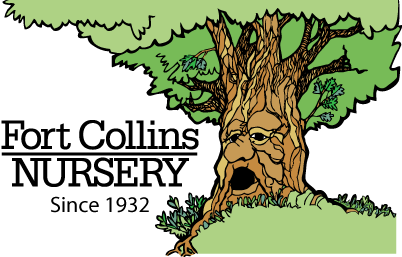By Shannon Moreau

As Black History month draws to close, I encourage you to take some time to explore and celebrate impactful black figures in the world of horticulture and agriculture. While there are many black farmers, inventors, researchers, and scientists who have influenced horticulture and agriculture, few are well-known although we enjoy the fruits of their labor every day. Here I’ve gathered the stories of two individuals who made significant contributions to the world of horticulture and science education!

Edmond Albius
Edmond (1829 – 1880) was born a slave on the island of Réunion and was sent to work for the botanist Fereol Bellier-Beaumont. During his time working for Bellier-Beaumont, he learned how to hand-pollinate many different plants in order to produce fruit. Using this technique, he unlocked the pollinating secrets of the perplexing vanilla orchid (Vanilla planifolia), the plant that produces the vanilla bean that is used to produce vanilla extract. At the end of the 18th century, vanilla orchids gained popularity and were exported across the world from their native range in Mexico. In their new homes the vines presented an interesting problem: they would grow and bloom normally, but remain bean-less! In his discovery and study of the vanilla orchids on Bellier-Beaumont’s land, Edmond – 12 at the time – was able to hand-pollinate several of the flowers on the vine and produce the prized vanilla beans. Following his discovery, Edmond was awarded his freedom and given the last name Albius. Additionally, Bellier-Beaumont wrote to the governor asking that Edmond be given a stipend for his incredible discovery but received no response. In 1838, another horticulturalist named Jean Michel Claude Richard attempted to claim
Edmond’s technique as his own. However, Bellier-Beaumont stepped in and wrote to the island’s official historian to correct the record and give Edmond Albius the credit for his discovery, and that letter is still part of the island’s official history today. Put in place 100 years after Edmond Albius’ death in 1880, the island now has a statue of him, as well as a street and a school named after him in tribute to his work.

Photo By Source (WP:NFCC#4), Fair use,
https://en.wikipedia.org
Marie Clark Taylor
Marie Clark Taylor (1911 – 1990) was an American botanist with an impressive career. Former colleague, fellow amazing woman in STEM, and devoted civil rights activist Margaret Strickland Collins described Taylor as “…a powerhouse who worked tirelessly to improve teacher training in the sciences.” Born in Sharpsburg, Pennsylvania in 1911, Taylor would go on to earn both her B.S. and M.S. in botany from Howard University. She then taught at Cardozo High School, a historically black high school, before applying to Fordham University for doctoral studies in botany. Her research focused on photomorphogenesis, which is the influence that light has on plant growth. In 1941 she received her Ph.D. in botany, cum laude, and became the first woman of any race to receive a scientific doctorate from
Fordham University, and she didn’t stop there! Taylor served in the Red Cross in New Guinea, and upon her return she served as an assistant professor at Howard University, becoming the Chair of the Botany
department from 1947 until her retirement in 1976. Throughout her career Taylor emphasized improving science education and helping teachers improve teaching methods, including the use of plant materials and light microscopes to study living cells. President Lyndon B. Johnson recognized her immense scientific talent and requested that she continue her work and teaching methods on both a national and international level. She passed on December 28, 1990, and an auditorium at Howard University is named
after her as thanks for all she contributed to the scientific and botanical world.
Additional Reading:
● https://www.farmproject.org/blog/2017/2/4/hikqys8igvv0bo368aco3mrb1rv7d1
● http://www.ourcityforest.org/blog/2016/2/17/four-african-american-scientists-environmentalists-and-activists-you-should-know-part-1
Citations
● Dinsmore, Lucy. “Woman of Firsts: Marie Clark Taylor”
https://www.womeninhorticulture.com/post/woman-of-firsts-marie-clark-taylor 11 Mar, 2019.
Accessed 15 Feb, 2021
● Nielsen, Euella “Edmond Albius (1829 – 1880)” https://www.blackpast.org/african-american-history/edmond-albius-1829-1880/ 13 Sept. 2020. Accessed 15 Feb, 2021
Originally published on March 2nd, 2021.
